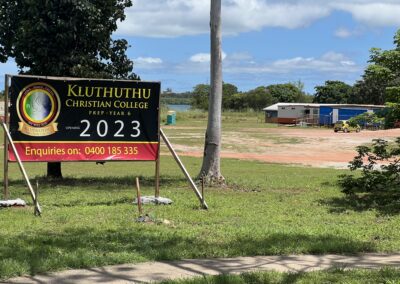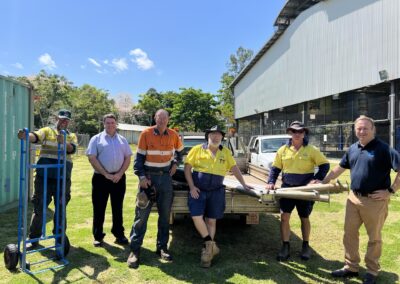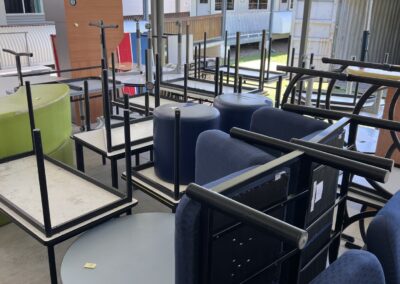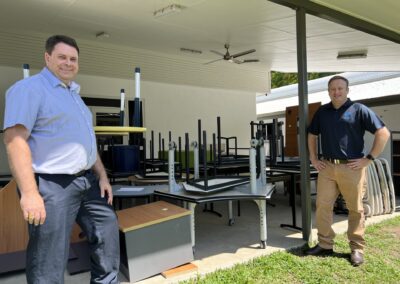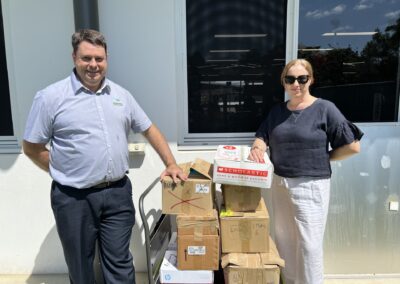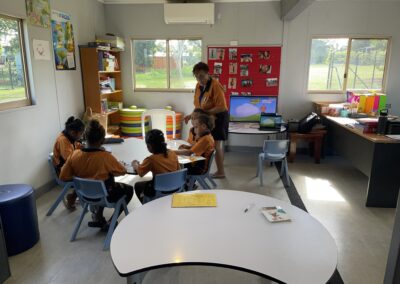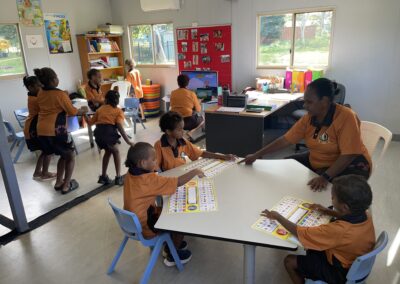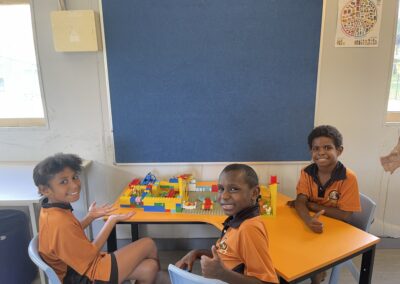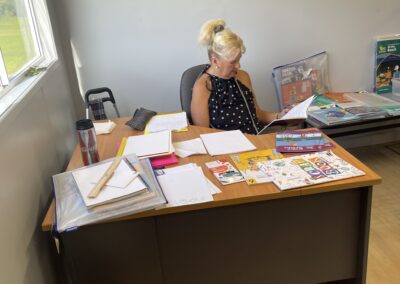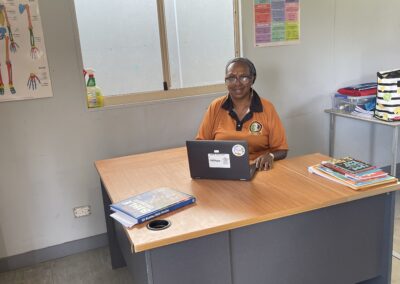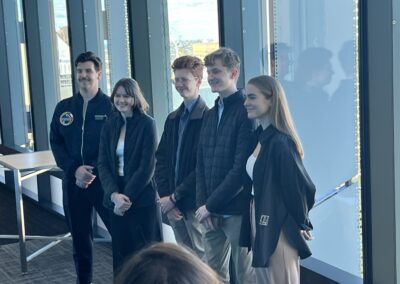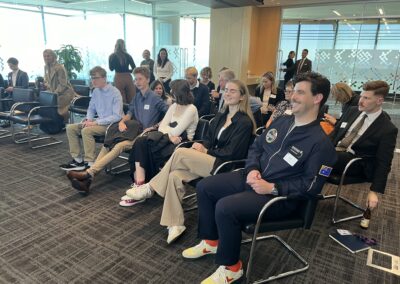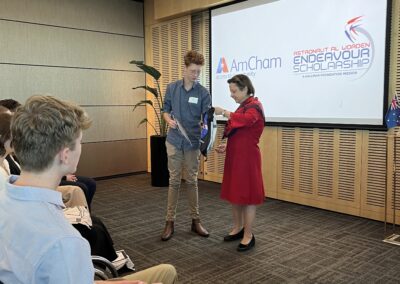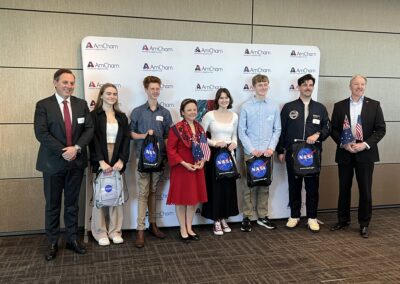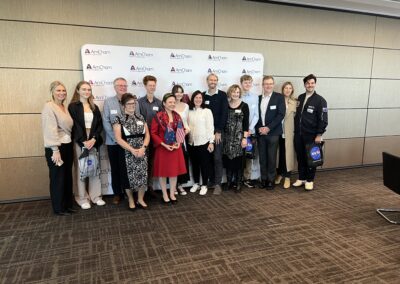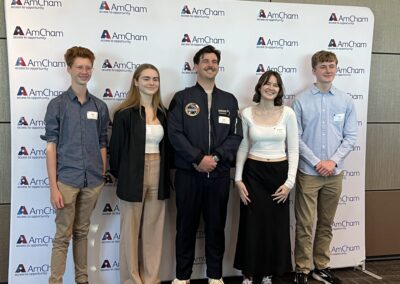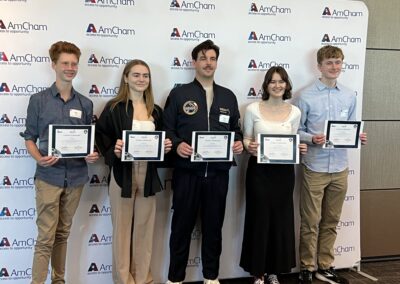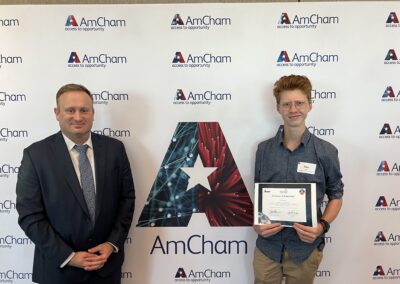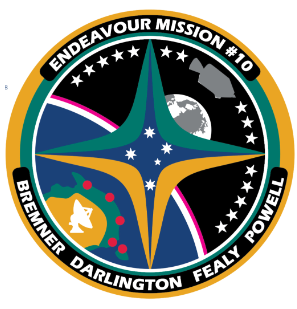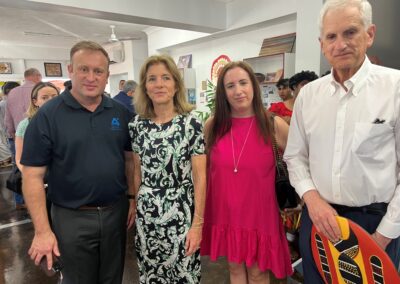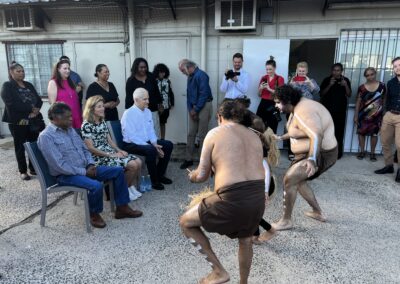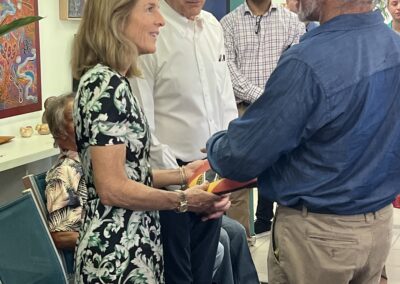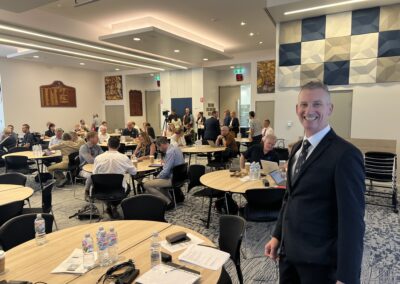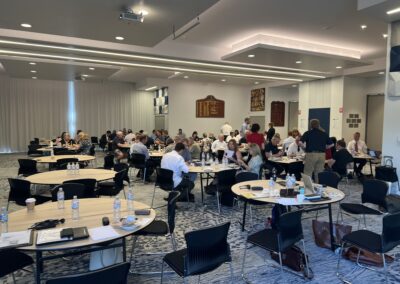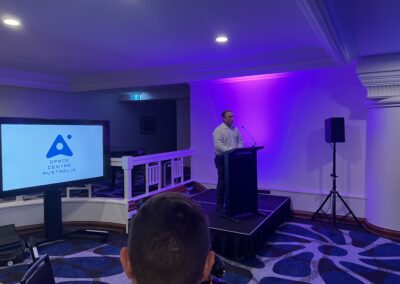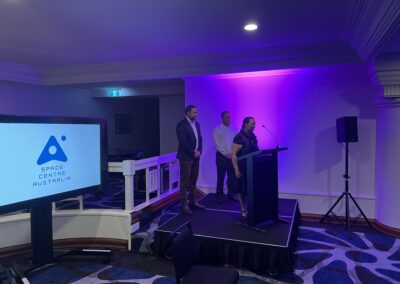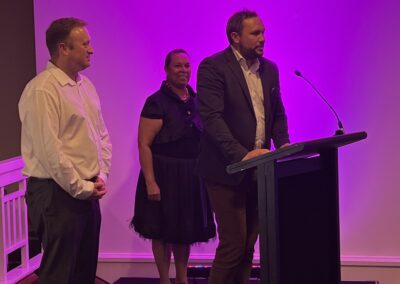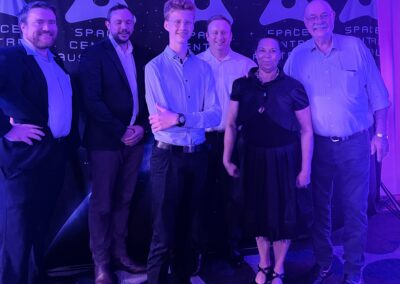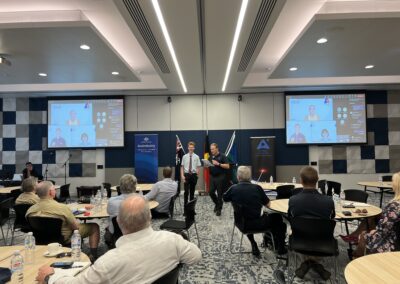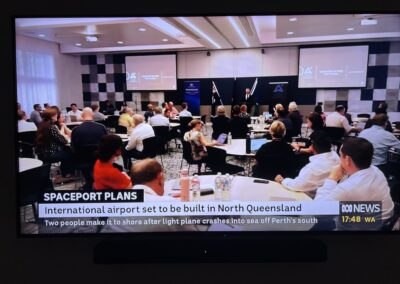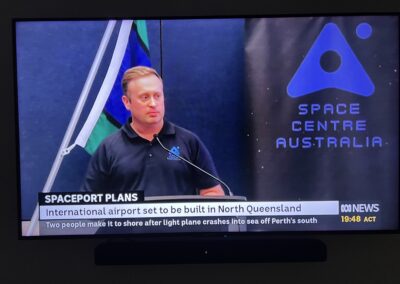SPACE CENTRE AUSTRALIA
SPACE INDUSTRY DEVELOPMENT
overview
The Australian and global space industries are rapidly growing. The global space sector is set to nearly triple in the next 20 years (from US$450 billion currently to US$1.1 trillion by 2040). By 2030, the Australian government aims to increase the size of the Australian industry from the current $5 billion to $12 billion by 2030.
The space ‘value chain’ includes research and development and component development and manufacturing at the one end (for the launch vehicle, the payload and of course the satellites in the payload) and operations and applications for the orbiting payloads at the other end. In between, launch services and infrastructure (including assembly, testing and integration of the vehicle and the payload), and including the actual launch facilities provide the essential component linking both ends of the chain.
Satellites are not complete until they are in space — the process of researching, designing and building them is not really finished until they are launched. Further, the services they will provide — to consumers, corporations and governments — cannot take place until the satellite is orbiting. Launch, and ancillary services, are thus a pivotal step in the space value chain — a crucial component of the full ecosystem that makes up the space economy. A space sport is an essential piece of infrastructure that allows this ‘transport’ to take place.
None of the activities before or after launch have value without a successful launch. Further, the cost effectiveness of launch services has important implications for the ongoing success of space endeavours.
To satisfy a growing industry, the market for global launch services will need to grow. Projections of growth in launch demand suggest that the market for Space Centre Australia’s (SCA) services could be up to $610 million a year by 2028, with potential total revenue of up to $5.7 billion between 2022 and 2032.
In a typical operating year by 2030, it is projected that SCA’s activities could increase Australian GDP by 0.06 per cent (compared with what it would otherwise have been). Most of this increase is experienced in Queensland, where gross state product is expected to be 0.3 per cent ($1 416 million) higher than otherwise in 2030.
Employment in Queensland is also expected to increase by around 0.3 per cent, equivalent to 7 200 persons (on a full time equivalent basis) in 2030. These economic changes will be distributed across key regions in Queensland in proportion to each regions’ capacity to supply key services to SCA.
Space Industry Value Chain
Space Industry Outputs

Intersection with other Industries
The space industry includes four broad segments:
- Manufacturing and core inputs: Activities comprise the building and integration of ground-based facilities and equipment that perform space-related activities; and the building and integration of items to go into space, including spacecraft, satellites, payloads, and products to be used in space.
- Operations: Activities include launch, the management of objects in space, and activities associated with using and managing satellites in space. It also includes operations and remote operations conducted in space.
- Applications: Activities refer to the use of space-derived resources to create usable and useful products and services, including software, hardware and publications, and services to be provided across the economy.
- Enabling services: Activities cover a variety of areas including product delivery and services which support space activities within the other three value chain segments. These include essential service delivery, infrastructure and capabilities, research, development and engineering, and specialised services, which facilitate and contribute to delivery of the products and services from manufacturing and core inputs, operations, and applications segments.

Early eduCATION and STEM
Innovation, Creativity, Entrepreneurship, Flexibility, Soft Skills, Communication, these are just some of the skills that employers now and in the future are looking for in their employees. Digital Technology has brought about a seismic shift in the way we work, play, learn, move, eat, communicate….well everything really! STEM education allows us to foster collaboration, strengthen critical-thinking skills, problem solve, create real-world scenarios, and prepare our kids for the future. Educators around Australia, and the world are incorporating STEM skills, not only in Science, Technology, Engineering, the Arts, and Math’s, but across all subjects and levels. We are talking about skills such as:
-
Creativity
-
Inquiry Skills
-
Design Thinking
-
Critical Thinking
-
Collaboration….just to name a few
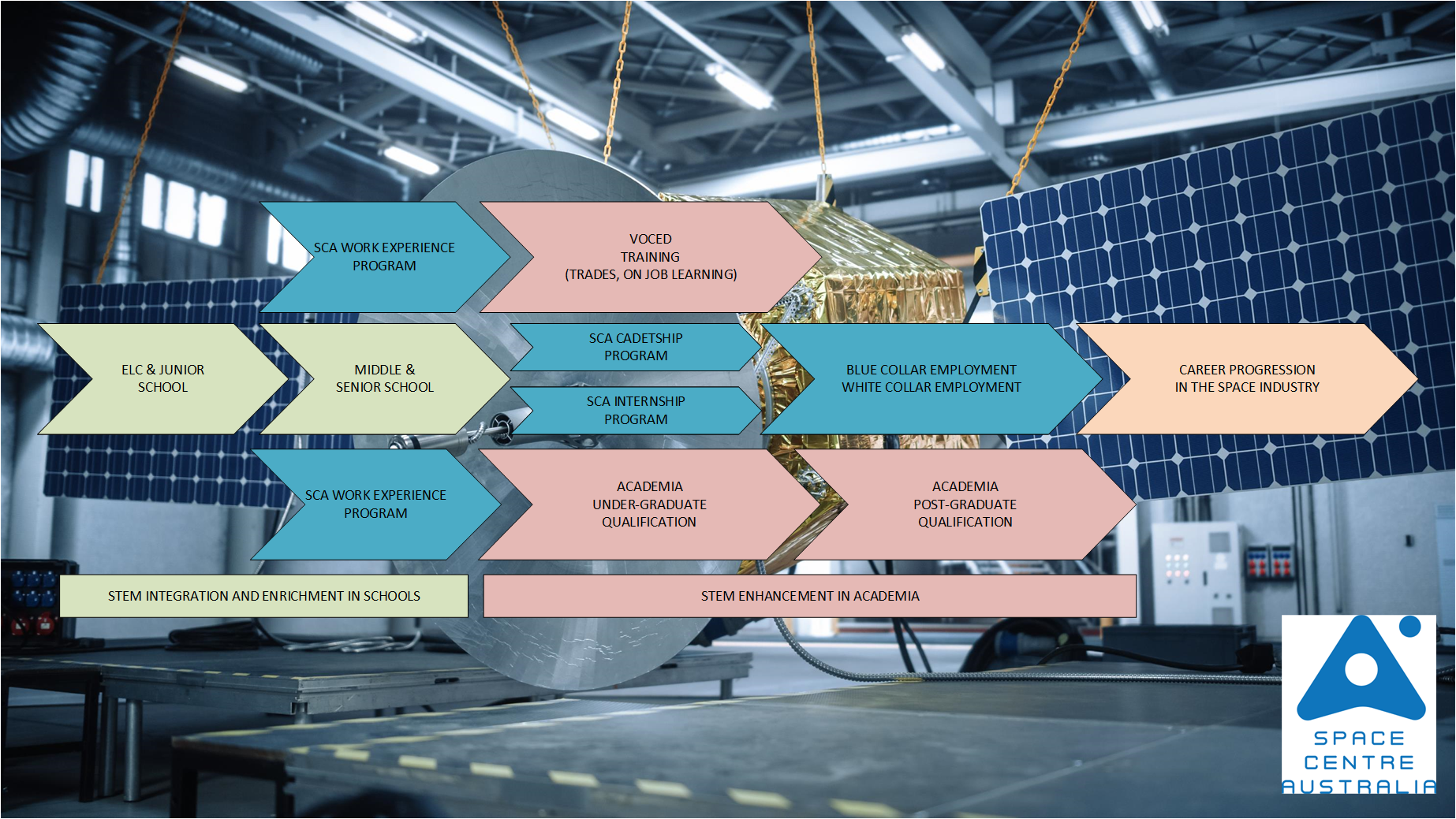
SCHOOL ENGAGEMENT projects
KLUTHUTHU CHRISTIAN COLLEGE
We believe in investing in our local community, especially in our schools because our children are the architects of our future. Last year, we spearheaded a donation initiative, and we’re thrilled to see it come to fruition!
Thanks to the collaborative effort of Space Centre Australia, Freshwater Christian College, and Carpentaria Contracting, we were able to provide much-needed furniture, learning materials, and playground equipment to Kluthuthu Christian College in Napranum, Queensland. This generous contribution has brought a significant uplift to the school, and we’re immensely grateful for everyone’s support in making this happen.
Here’s a snapshot of the items donated:
– Student Desks
– Worktables
– Learning materials and books
– Teacher and office desks and chairs
– Whiteboards and Corkboards
– Outdoor tables and chairs for recess
– Outdoor swing set
This assistance has made a tangible difference in the lives of these students. Thank you for helping us create a brighter future for our community!
Endeavour Shcolarship space camp
ABOUT THE ENDEAVOUR SCHOLARSHIP FOUNDATION
Apollo 15 Command Module Pilot Colonel Al Worden and global advocate for science, technology, engineering, art, and math (STEAM) education, inspired the Endeavour Scholarship program in 2019.
Managed by the nonprofit Kallman Foundation, a 501(c)(3), the program awards scholarship grants that enable teams of carefully selected secondary school age students, and their teacher chaperones, to participate in the world-renowned International Space Camp in Huntsville, Alabama.
Carrying out Worden’s legacy through advocacy, Apollo 16 Lunar Module Pilot, Brigadier General Charlie Duke, USAF (Ret) has been an ambassador for the program for the past two years, meeting scholarship winners at select awards ceremonies and at Space Camp in July 2022.
The entire roster of ‘Endeavour Scholars’ include students and teachers from the United Arab Emirates, the United Kingdom, Chile, France, Singapore, Australia, Bahrain, and the United States.
The program is funded through the generosity of private-sector corporations and individuals who share Al Worden’s passion for inspiring future generations to work across national boundaries and keep reaching for new horizons. For more information visit www.endeavourscholarship.org
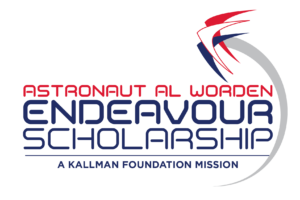
Mission Team 10 Australia Scholarship Winners 2023
North Queensland Space Industry Workshop April 2023
This and future forums are designed to gain an understanding of the existing supply lines available within the North Queensland Region that can be identified to self-pivot towards catering to the Space Industry with a strategic aim to providing goods and services to Space Centre Australia and related businesses in the future.
The Far North Region is unique and can provide multiple opportunities for development and sustainment of SCA and the Wider National and International Space Industry Sector and we consider the Space Industry to be new and disruptive in Far North Queensland and therefore requires extensive due diligence, analysis and consideration to ensure that communities, businesses and government all benefit from its presence.
SCA is intended on being a permanent capability for Far North Queensland to benefit from but first requires a solid foundation of support, sustainment and futureproofing from community, business, and government.
Outcomes of the Forum:
Outcome 1:
Establish a common understanding of the Space Industry Sector regionally, nationally, and internationally and how it impacts Far North Queensland.
Outcome 2:
Establish a single source of truth on the operational intent of Space Centre Australia.
Outcome 3:
Establish the Space Industry Value Chain and Establish supplier foundations and capture future expectations related to SCA (Delivery and Ongoing Sustainment).
Outcome 4:
Establish a narrative that encourages positive collaboration and cooperation between community, academia, businesses, and government.
Outcome 5:
Establish pathways to introduce new technology into the region and establish an environment that encourages innovation.
Outcome 6:
Establish a common understanding of the strengths, weaknesses and opportunities within the local and regional market related to the Domestic and International Space Industry.
Key Conference Findings
- Existing infrastructure upgrades are required for the region such as (Roads, civil infrastructure, local government normalisation).
- A very high level of support for the project was received from the local and regional community and business.
- Workforce sustainability in high end tech sectors such as space will need to be realised with education and development being emphaisied as a high priority.
- Local manufacture capabilities of sophisticated components need to be established in the immediate region.
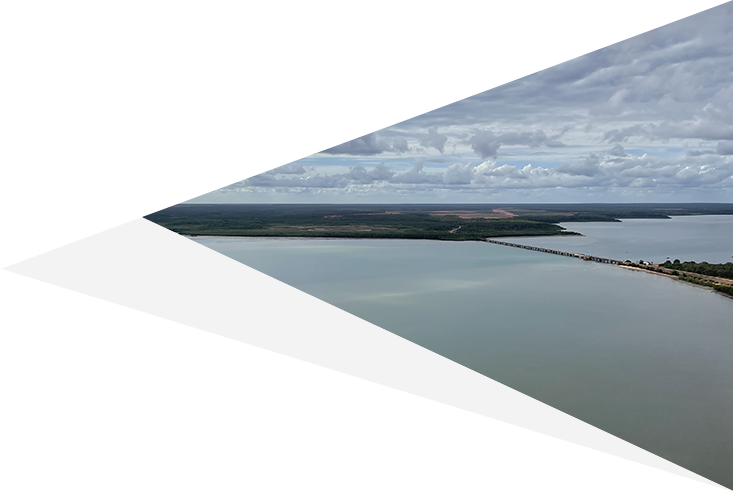
Contact us for all media enquiries
Mailing Address:
P. O. Box 3161, Cairns, Queensland, Australia, 4870
Space Centre Australia:
Proposed Weipa, Queensland
Cairns, Queensland
Canberra, Australian Capital Territory
United States of America
Virginia, USA
United Kingdom
Liverpool, United Kingdom
Hours AEST GMT +10
Mon 09:00 am – 05:00 pm
Tue 09:00 am – 05:00 pm
Wed 09:00 am – 05:00 pm
Thu 09:00 am – 05:00 pm
Fri 09:00 am – 05:00 pm
Sat Closed
Sun Closed






